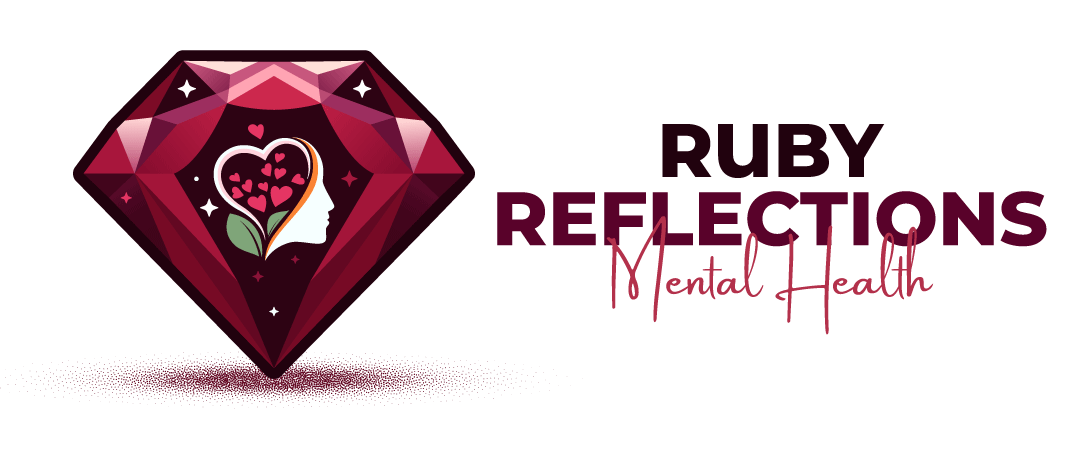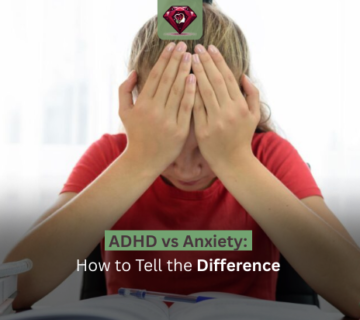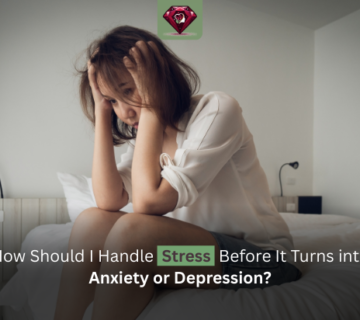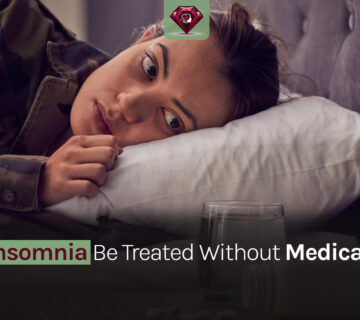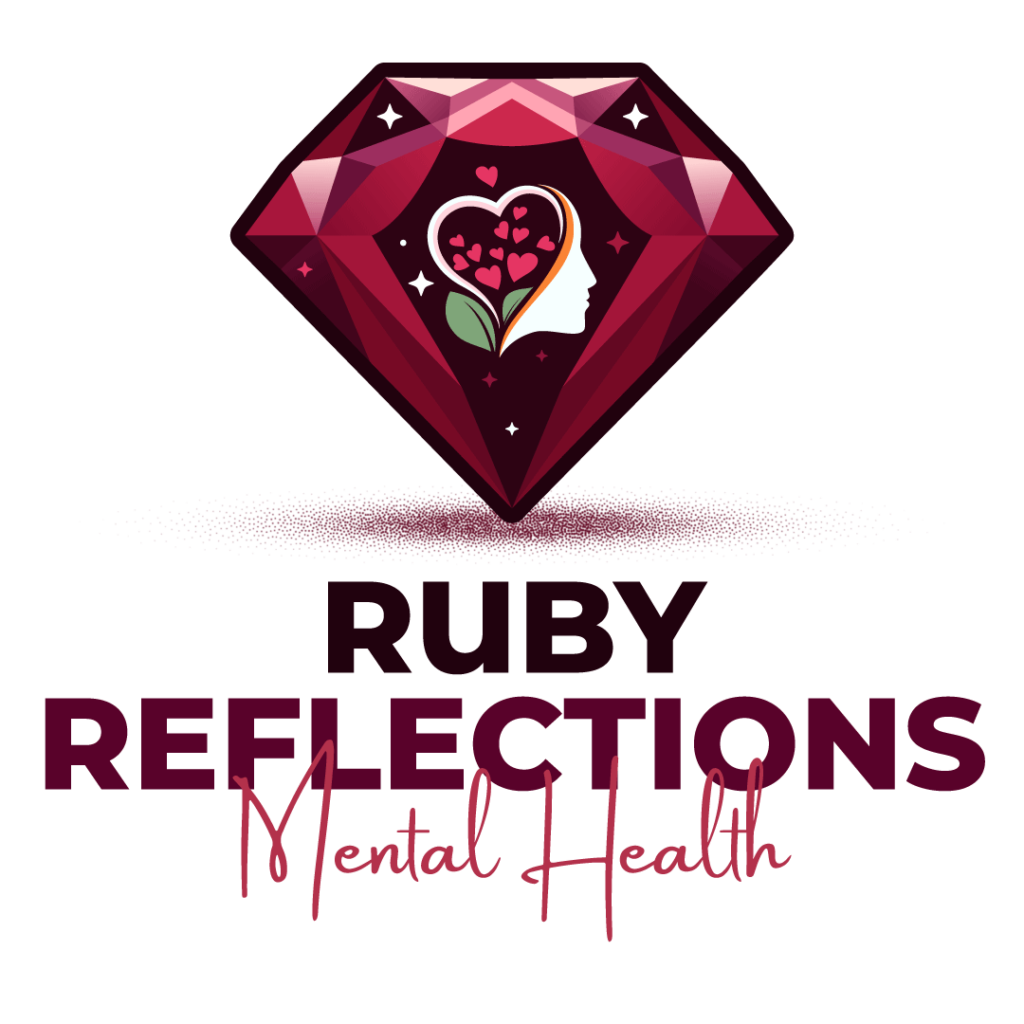Your teenager’s been acting differently. They become secluded, speaking in odd, unusual manners, or appear to be out of touch with reality.
The issue is, is this normal teenage behavior, or is it more serious?
The initial indicators of psychotic disorders are sometimes difficult to identify, given that they usually appear like typical cases of adolescent hardships.
At Ruby Reflections Mental Health, we assist parents in knowing when these behaviors require professional intervention.
What to Watch For
Symptoms of early psychosis are described as “prodromal.”
They include signs like:
- Not wanting to see friends
- Feeling like people want to hurt them
- Not showering
- Seeing or hearing things that aren’t there
Such changes occur slowly; hence, they may not be easy to note initially.
The primary indicators are inclined to be classified as follows:
Changes in Social Behavior:
- Withdrawing from close friends and family members
- Losing interest in activities they once liked and enjoyed
- Becoming very isolated or secretive
- Struggling to maintain relationships
Shifts in Thinking Patterns:
- Expressing unusual beliefs or ideas that seem out of character
- Difficulty concentrating or following conversations
- Speaking in ways that are hard to understand or follow
- Showing signs of paranoia or suspicion
Alterations in Perception:
- Reporting hearing voices or seeing things others don’t
- Seeming to respond to things that aren’t there
- Appearing distracted by internal experiences
- Being too sensitive to sounds, lights, or fabrics
Physical and Behavioral Changes:
- Negligence in self-care or hygiene
- Rapid shifts in sleeping patterns
- Significant decline in academic performance
- Strange or improper emotional response
When It’s Not Just a Phase
It is natural that all teenagers have moody periods, turn rebellious, or need time off with their families.
The distinction is in the severity, length and effect of these alterations. The transformation in the teen would likely be quite apparent to a parent.
What is especially worrying about these symptoms is when they:
- Last weeks or even months instead of days
- Extremely disrupts normal functioning
- Represents a marked change from your teen’s usual personality
- Are accompanied by other warning signs
It is important to note that Schizophrenia is present in only 0.1% of people aged between 15 and 19. It is not very common, but it is worth noting early on.
Getting Help Early
Here’s something that might surprise you: Early intervention can actually improve outcomes for teens experiencing psychotic symptoms.
Treatment generally involves antipsychotic medications, which should be—but are often not—accompanied by psychosocial interventions such as family and cognitive behavioral therapy and case management.
The most effective approaches include:
- Comprehensive family education and support
- Individual therapy customized to adolescent needs
- Medication management when appropriate
- School and social support coordination
- Peer and family support groups
What to Do
Follow that feeling when you feel that something is wrong with your teenager. Start the dialogue through openly non-judgmental discussions.
It is important to listen to them and not to dismiss their thoughts, as their words might be unusual and concerning.
Write down what you see—not to make a case but to inform the healthcare providers of the entire picture.
Observe behavioral and mood changes, sleeping problems, social activity, and school performance.
Above all, contact mental health specialists dealing with the mental care of adolescents.
The existence of early intervention programs is based precisely on the fact that early help can be better than late.
Next Steps
Being aware of possible indicators of psychotic disorders in adolescence does not mean panicking, but it is about preparation and hope.
Given proper support, most teenagers with early psychotic symptoms may lead productive and very successful lives.
It is important to remember that you do not have to fight this thing by yourself.
The foundation can be created by professional support, family education, and evidence-based treatments, which will help your teenager succeed.
Ruby Reflections Mental Health is here to provide all the support that your teen needs right now.
Reach Out to Us
At Ruby Reflections Mental Health, we specialize in adolescent mental health and understand families’ unique challenges during these critical years.
Our team provides comprehensive evaluations, evidence-based treatments, and ongoing support for teens and their families.
Uncertainty should not restrict you from getting the help your teenager needs.
Contact Ruby Reflections Mental Health today to schedule a confidential consultation.
Visit Ruby Reflections Mental Health to learn more about our mental health services.
FAQs
Is psychosis always accompanied by hallucinations?
Not necessarily. Isolated hallucinations may occur as a result of extreme stress or lack of sleep in some teens.
Nevertheless, hallucinations of a recurring nature are subject to examination by professionals.
Is the prevention of psychotic diseases possible?
Although we can not avoid all psychotic disorders, early intervention will help to decrease their effect greatly and help make the long-term outcome more positive.
When must I seek help?
It is advisable to seek the help of a mental health professional when you observe several worrying signs that continue to appear after several weeks.
Do not delay until the symptoms get worse.
